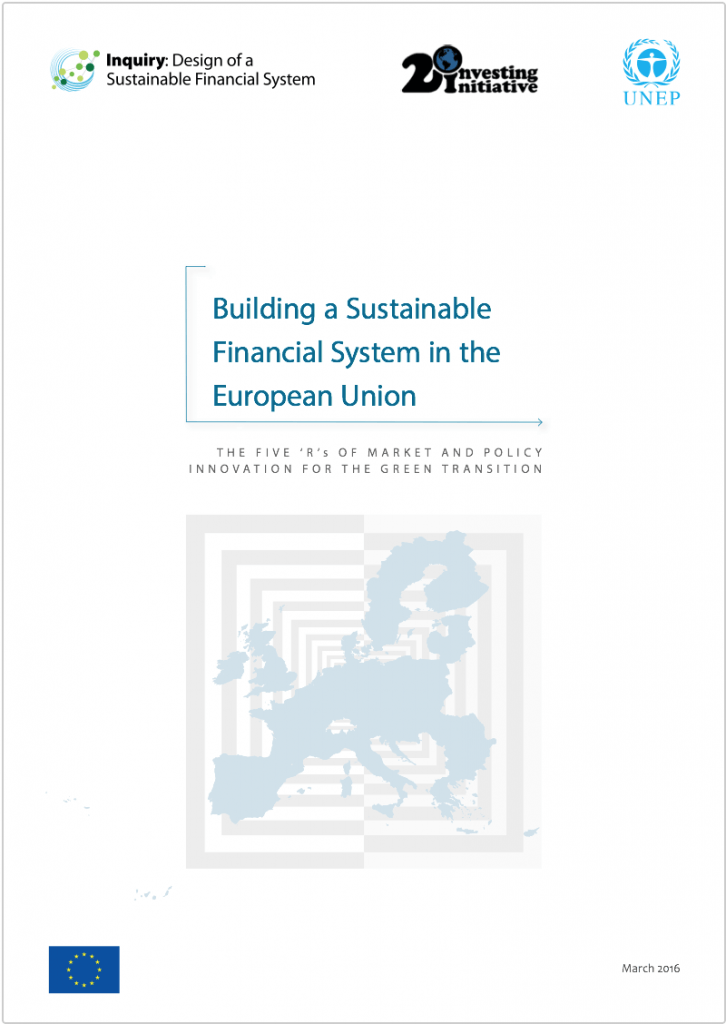Increasingly, European financial policymakers and regulators are exploring their role in enabling an orderly transition to a prosperous low-carbon economy. This report presents a stock-take of actions under way at the European Union level and in selected Member States to align the rules governing the financial system with environmental sustainability. This is a fast-moving debate, with global developments such as China’s launch of the new G20 Green Finance Study Group pointing to the strategic nature of the agenda.
The European Commission (EC) estimates that up to €2 trillion will be required to meet the policy goals of the Europe 2020 Strategy for smart, sustainable and inclusive growth. The scale of the investment challenge has prompted a new focus on the strategic role of financial policy and regulation in harnessing the EU financial system. In this context, building a sustainable financial system can contribute to economic recovery by allocating capital to new growth sectors, as well as improving the efficiency and effectiveness of the capital intermediation process through improved risk management, better flows of information and a core alignment with long-term social purpose.
Looking across the range of innovations across the EU, five broad policy priorities emerge. The central challenge of financing sustainable development in the EU is one of capital reallocation. Enhancing frameworks for risk management, clarifying the core responsibilities of financial institutions and improving reporting and disclosure across these dimensions will be necessary to fully unlock flows of sustainable finance. A growing number of Member States are delivering on individual aspects of these priorities, and others are acting within given asset classes. The debate is now advancing to the system level and the need for a strategic reset, seeking to link previously unconnected initiatives and to enhance the capacity of the financial system to support renewed economic competitiveness and improve sustainability performance.



